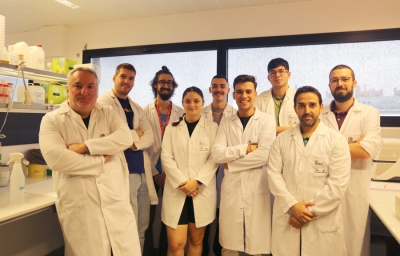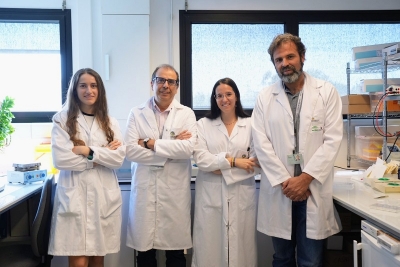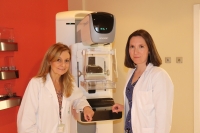The beneficial effects of fermented black garlic extract on prostate cancer are evaluated
Escrito por UCC+iA team at the University of Cordoba and IMIBIC tests the protective effect of a fermented black garlic extract against inflammation and the progression of prostate cancer in a study conducted on human prostate cancer cell models in the laboratory.
A groundbreaking study describes a new molecular pathway involved in the control of reproduction
Escrito por UCC+iA study spearheaded by the University of Cordoba and the IMIBIC provides the first evidence of a direct interaction between kisspeptins, proteins crucial for sexual development, and astrocytes, non-neuronal cells of the nervous system, blazing new trails towards understanding the reproductive system's regulation
Excessive patient loads were the greatest cause of moral distress among health personnel during the pandemic
Escrito por UCC+iBeing a woman, a nursing professional, and working in the community sphere increased the risk of moral distress (MD), according to a study by the University of Cordoba carried out among more than 500 professionals with the Public Health Service of Andalusia in a period immediately after the COVID-19 PANDEMIC
'3D mammography' almost halves the incidence of breast cancer between two screening tests
Escrito por UCC+iA clinical study in which almost 40,000 women have participated reveals the efficacy of breast tomosynthesis in decreasing the rate of interval carcinomas; that is, those that appear between two screening tests, suggesting the advisability of including this diagnostic technique in breast cancer early detection programs
A study demonstrates one of the reasons why the Mediterranean diet improves kidney health in patients with diabetes
Escrito por ucc+IA 5-year study involving more than 500 diabetic patients compared the effect of two healthy diets on the body, concluding that the Mediterranean diet favors the elimination of compounds affecting kidney function
A collaborative effort between the University of Córdoba and IMIBIC uses, for the first time, changes in sweat metabolism to diagnose the severity of sleep apnea







